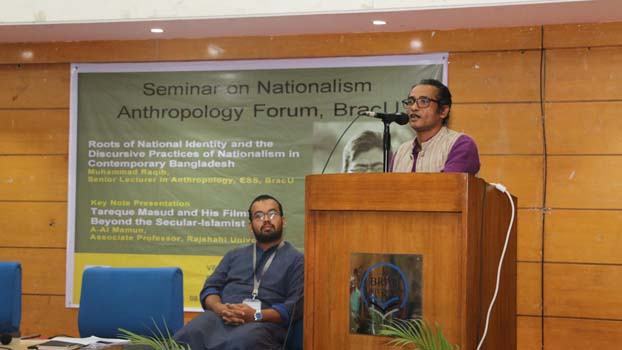‘Tareque Masud opened new horizon in filmmaking’

The way prominent and celebrated filmmaker Tareque Masud used poetics to portray politics is unique. That is why people get involved with his philosophy. Tareque Masud opened a new window of filmmaking in Bangladesh. He can be discovered through his creations.
These views were expressed by Associate Professor Abdullah-Al Mamun. He is a teacher at the Department of Mass Communication and Journalism at the University of Rajshahi. Mamun was delivering a keynote speech on “Tareque Masud and his film: Beyond the Secular-Islamist Binary”. It was during a “Nationalism” seminar organised by the Anthropology Forum of Brac University (BracU). The event took place in BracU’s Mohakhali campus on Sunday last.
Tareque Masud was renowned globally for his films such as 'Muktir Gaan' and 'Matir Moyna'. He was killed in a road accident in Manikganj on August 13, 2011.
Mamun said religion and culture are two inseparable parts of Bangladesh’s society. Tareque Masud’s creations showed how conflicts between the two can be stopped.
The main element of his movies, which are based on Bangladesh’s Liberation War in 1971, should be the genocide. But it is a pity that heroism has now become the main attraction, said Mamun. It is not only war, salvation should be the main component and message in movies of this kind, he said.
Muhammad Raqib, Senior Lecturer of Anthropology at BracU delivered another speech. It was on “Roots of National Identity in Bangladesh and the Discursive Practices of Nationalism in Contemporary Bangladesh”. He said contradictions, ambiguities and incoherencies govern discourses of nationalism in Bangladesh. It shows the complex nature of nationalism in everyday life of the people.
ATM Nurul Amin, Chairperson of the Department of Economics and Social Sciences, Seuty Sabur, Associate Professor, and other faculty members and students from different departments were present at the seminar.




